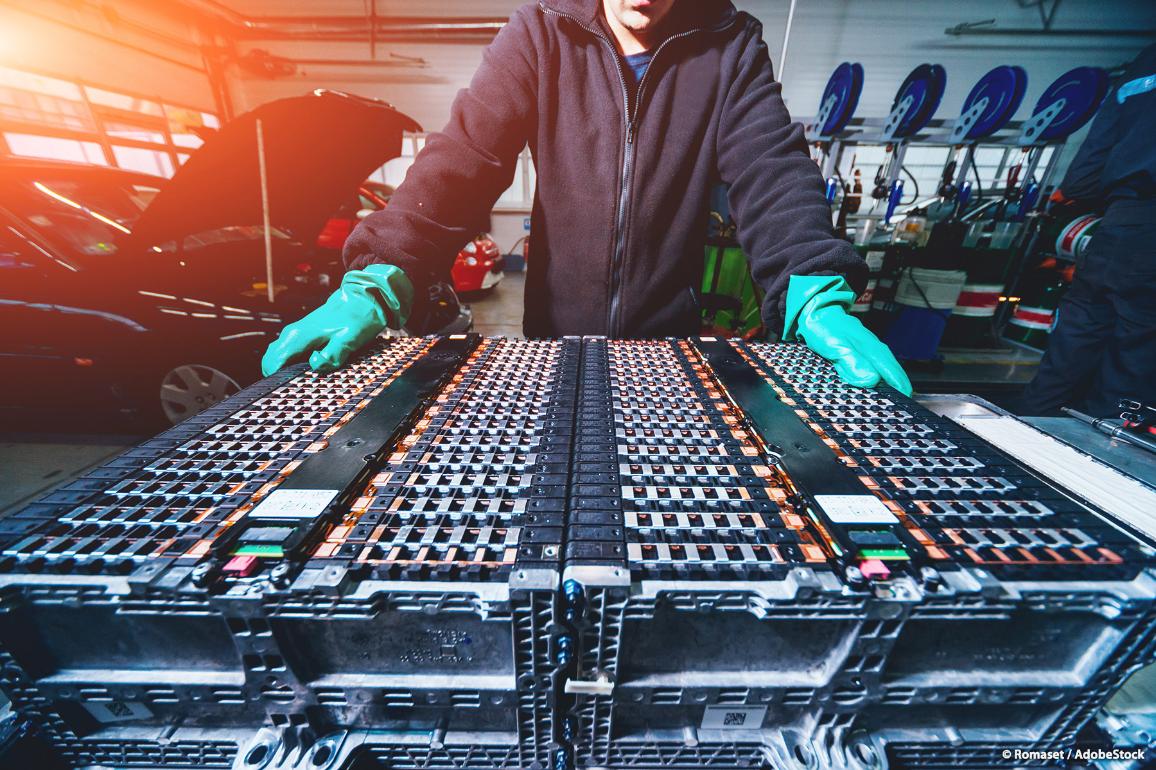What Goldman Sachs’ plan to reduce dependence on China for batteries says

According to Goldman Sachs, the United States and Europe can reduce their dependence on batteries from China with an investment of 160 billion dollars by 2030. The Financial Times article
EV batteries are one of the key technologies causing concern in Western capitals over reliance on China. Following years of deep state support and Beijing's desire to reduce its dependence on imported oil, China produces three-quarters of the world's batteries and also dominates the production of materials and components.
However, according to a report to clients seen by the Financial Times , the investment bank's analysts believe a sharp turn towards protectionism by Washington and Brussels, coupled with an unprecedented surge in spending by non-Chinese firms , has the potential to free the West from its dependence on Beijing over the next seven years.
To achieve a self-sustaining supply chain, countries competing with China would need to spend $78.2 billion on batteries, $60.4 billion on components and $13.5 billion on lithium mining. nickel and cobalt, as well as $12.1 billion for refining these materials.
The bank's analysts believe that demand for finished batteries could be met without China within the next three to five years, thanks largely to large investments in the US by South Korean conglomerates LG and SK, which have been attracted by massive subsidies from the US taxpayers.
LG Chem on Tuesday said it will invest more than $3 billion to build a battery cathode factory in Tennessee, the largest of its kind in the United States. Goldman expects Korean battery makers' market share in the United States to rise to about 55% in three years, from 11% in 2021.
The passage of the Inflation Reduction Act in August brought huge tax breaks and other subsidies for locating battery supply chains and fueling the deployment of electric vehicles. Goldman predicts that “the average eligible EV in the United States” will receive more than $10,000 in IRA benefits.
Ross Gregory, a partner at electric vehicle consultancy New Electric Partners, said that despite the IRA approval and the recent surge in investment in gigafactories, Goldman's cost estimates appear too low, the timing is optimistic and expectations about the impact of battery recycling are unrealistic.
“Some momentum is building, but there is not yet a strong willingness to invest upstream from anyone other than Chinese operators. For example, there has not been a single Australian open-pit battery mining project that has benefited from major foreign investment,” he added: “The likely growth of EV infrastructure in China over this period will be massive enough to outstrip that of Europe and the United States".
Reducing China's dominance in battery materials and components is also seen as a challenge. The global market share of the Chinese groups in terms of anode production capacity is 87%, that of precursors 85% and that of cathodes 77%.
According to Goldman analysts, this dominance could be undone by protectionist policies in Europe and the United States, coupled with alternative battery chemistries that require fewer critical minerals from China, as well as increased battery recycling that would reduce demand for lithium and nickel.
According to Goldman, other companies outside of China are developing sodium-ion batteries – an alternative to lithium batteries – and LFP, a type of cathode that does not use nickel and cobalt.
However, the underlying economics of EV battery production in the West pose a key obstacle to decoupling from China.
“We note that the capex per unit, as reflected in recent announcements by US companies, is 78% higher than that of China…Recent labor shortages and wage inflation would also make battery production more expensive in the US,” analysts noted.
Environmental risk also poses an unresolved challenge for the EV supply chain outside of China. So far, the world has relied willingly on China not only for mineral extraction, but also for material processing that involves the use of highly toxic chemicals and related wastes.
This is a machine translation from Italian language of a post published on Start Magazine at the URL https://www.startmag.it/energia/goldman-sachs-distacco-cina-batterie/ on Sun, 27 Nov 2022 07:17:36 +0000.
